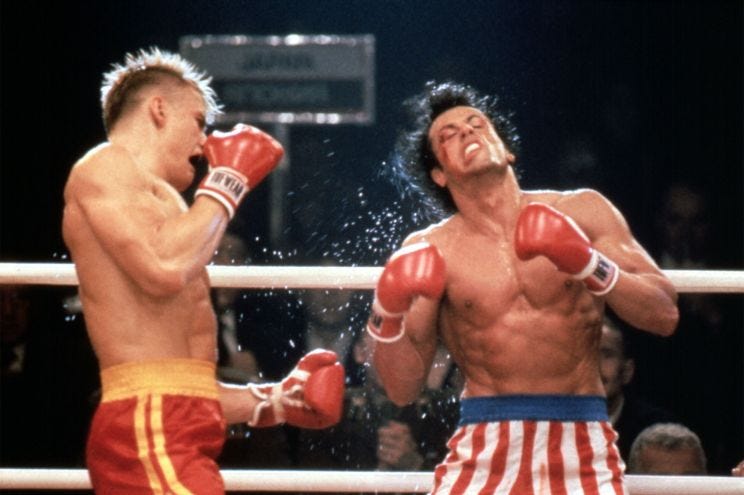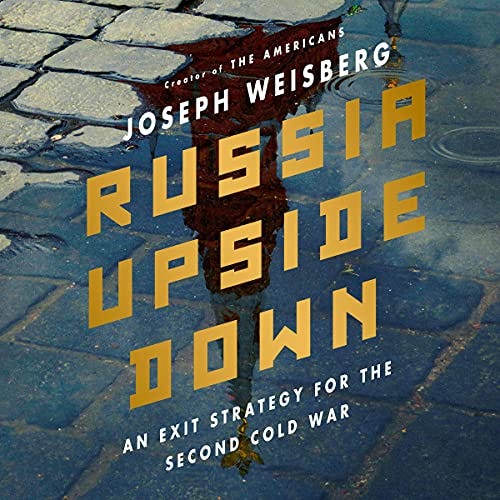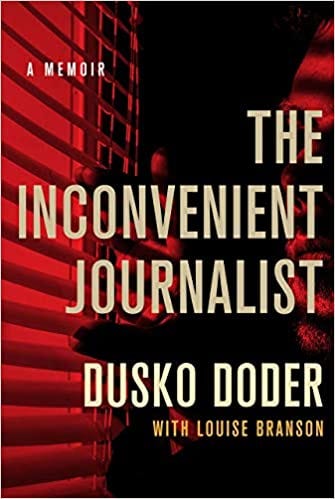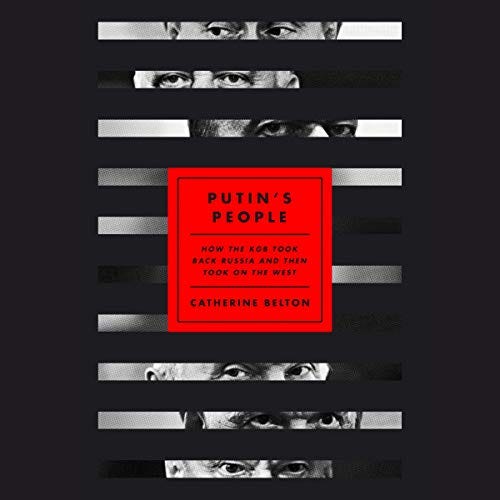Convergence!
The United States of Dysfunction vs. the Russian Bullies
In the mid-twentieth-century years of the Cold War, there were multiple high-level parlays debating how the two great nuclear superpowers of the era, the United States of America and the Union of Soviet Socialist Republics, would develop in the coming decades. The issue was most clearly framed in 1964, when two future superstar specialists published Political Power: USA/USSR. Zbigniew Brzezinski (later national security adviser to President Jimmy Carter) and Samuel Huntington (Harvard professor and the author of the classic The Clash of Civilizations and the Remaking of World Order) posed the question of whether the American and Soviet political systems would “evolve” or “converge” and “eventually achieve a common pattern.” – in other words, whether over time they would come to resemble each other and, if so, in what ways.
That conundrum is even more intriguing at the start of 2022. The USSR has been gone for thirty years, and the United States, by most accounts, is in a crisis of democracy, one of the most serious in the nation’s history. Lest memory has dimmed, over seventy-four million people voted in 2020 for Donald Trump, who insists that the presidential election was stolen from him. And Vladimir Putin has maneuvered Russian politics so that, effectively, he can remain at the Kremlin helm indefinitely.
Russian troops are massed at Ukraine’s border and have now been dispatched to Kazakhstan. Putin is delivering ultimatums to NATO. The United States, NATO, and Russia are confronting security issues long thought to be resolved. Whatever happened to détente?
I have been reading four important books that one way or another deal with this fundamental reality of global relations, the rhetoric, and the dangers. Are the United States and Russia again enemies? And what about ascendent China, an authoritarian society with capitalist features and a population four times the size of the U.S. and ten times the size of a Russia that is diminished, no longer an empire, and very bitter about its loss.
Here, briefly, are these books:
Russia Upside Down: An Exit Strategy for the Second Cold War by Joseph Weisberg (PublicAffairs), the creator of The Americans, the long-running television series about Soviet spies embedded in the U.S. as “sleeper agents” in the 1980s. His case is that because we view Russia exclusively as a repressive, thuggish oligarchy, we can never really devise a means of getting along with it, in whatever form it is governed. Weisberg’s recent piece in The Washington Post is an excellent summary of his argument.
There Is Nothing for You Here: Finding Opportunity in the Twenty-first Century by Fiona Hill (Mariner Books), the British-born Russia expert who became famous when she testified in the first impeachment hearings against Trump. She argues that in northern England (where she grew up), in stretches of the American Midwest, South, and Appalachia, and in the Russian hinterlands there are millions of people, nearly all white and working class, who have been left behind by changes in manufacturing, technology, and culture. Once scruffy but proud coal miners, among others, are angry and anxious and ready to embrace Trump’s neo-fascism and Putin’s rage against what they see as an elite Western culture that disrespects them. A twenty-first-century axis of grievance.
The Inconvenient Journalist: A Memoir by Dusko Doder (Cornell University Press), a former colleague of mine at The Washington Post and a Moscow correspondent in the Soviet era who ran afoul of the CIA by essentially mocking it. The agency’s response was, as he puts it, to “assassinate” his reputation by telling the FBI and Time magazine that he was a paid KGB stooge. Doder eventually won a settlement from the magazine but never personally recovered from the slur. His story makes clear that independent journalism must be protected from the repression of a vengeful state and from rapacious proprietors.
Putin’s People: How the KGB Took Back Russia and Then Took on the West by Catherine Belton (Farrar, Strauss and Giroux). This is an investigative portrayal of how the ranks of the former KGB came to dominate contemporary Russian life, an account that is strikingly similar to the description of right-wing influence in the U.S. -- a complex network of money, propaganda, and ideological cynicism. Belton’s detail is extraordinary. For a chilling comparison, read the work of Jane Mayer in the New Yorker.
My purpose in this piece is not to review these books on their merits, but to assert that “convergence” and “evolution” have in fact happened, but not, alas, in the way the idealists imagined. In the spectrum of better or worse convergence, the trends are largely negative.
My purpose in this piece is not to review these books on their merits, but to assert that “convergence” and “evolution” have in fact happened, but not, alas, in the way the idealists imagined. In the spectrum of better or worse convergence, the trends are largely negative.
Americans want to consider our national failings as, generally, reparable, whereas we believe the Russians’ failings are endemic. And yet our Afghanistan debacle of the past twenty years resembles the Soviet imperial intervention in the 1980s. Afghanistan was deemed the Kremlin’s Vietnam and now it is an American failure also. Neither the U.S. nor the USSR could muster the will to meet its objectives in those wars.
The United States is in a recurring “reckoning” on race and gender issues and about our deep history of cultural and social inequality. This, of course, has happened before, in the Civil War, during Reconstruction, through the Jim Crow era, and in the Civil Rights crusades of the 1950s and ’60s. The right to vote is again a crucial matter, as it was so long for women and for Blacks in the South. Discrimination seems so embedded in society that it is hard to credit progress when so much still needs to be done.
Meanwhile, in Russia, voting is considered, in most respects, a farce. And beyond the glitz and abundance in Moscow, vast sectors of what is still the world’s largest landmass live in conditions closer to the peasant past than to the modern standards of the developed West.
In both countries, the aggrieved who are left behind or who believe they are so, and the powerful who contend that no amount of anything worth having can be too much, share a great many common traits that underscore inequalities.
So, as we mark this thirtieth anniversary of the end of the Union of Soviet Socialist Republics, we see Russia’s growing convergence with the United States against the background of China’s major challenge to the once reigning superpowers. The mantle of world dominance is in play. No matter how China develops, its rise will have consequential impact in the long-standing competition between the U.S. and Russia, two countries that in many respects have become more like each other rather than fulfilling our best hopes for them to converge.








